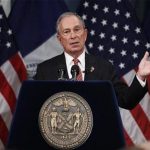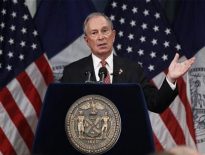(Reuters) – The success of two polarizing figures in Egypt’s presidential election could make it harder to put in place an effective government that can tackle an economic crisis and secure vital foreign aid.

No centre-ground figure made it to next month’s run-off vote, setting up a showdown between the Muslim Brotherhood’s candidate, Mohamed Mursi, and ex-army man and Hosni Mubarak’s last prime minister, Ahmed Shafiq, two symbols of opposing political forces whose rivalry has caused months of policy paralysis.
Protesters threw petrol bombs at Shafiq’s campaign headquarters in Cairo late on Monday, incensed that a figure so closely associated with ousted leader Mubarak now had a strong chance to replace him as president.
The army generals who took power from Mubarak have promised to hand over to the new president by July 1 and many Egyptians are hoping for a unifying figure who can end political turmoil, restore security and revive a struggling economy.
“After the outcome of the first round, we are much more bearish,” said an economist at a major foreign bank, who did not wish to be identified. “We see a lot more instability, but the major risk is the long-term outlook. This result does not unlock the situation.”
Last year’s uprising saw off tourists and foreign investors, two of Egypt’s main sources of foreign currency, and economists say the country will need a minimum of $11 billion over the next year to stave off a balance of payments crisis and a potential devaluation of its currency.
The winner of the run-off on June 16 and 17 will need to inject new vigor into efforts to secure funds from foreign donors, including the IMF, as a stop-gap until the economy recovers.
But both candidates could struggle to win the broad political backing needed for effective government.
Shafiq is campaigning as a strong, military man who will force order upon a country still suffering from the mayhem sparked by Mubarak’s overthrow, an image that makes it hard to win over the political class set free by last year’s uprising.
The Brotherhood’s Mursi is trying to rally supporters of candidates knocked out in last week’s first round to help block Shafiq from the presidency. However, he faces suspicion from liberals and revolutionary groups who see the movement as hungry for power so it can impose a conservative social agenda.
“All this could delay things further and could mean this limbo in policymaking will continue,” said Karin Maree of the Economist Intelligence Unit.
A win for Mursi would usher in a Brotherhood-dominated government that would have a much easier time working with the Islamist-dominated parliament, perhaps helping to push through economic reforms the International Monetary Fund wants before releasing a $3.2 billion loan.
A win for Shafiq implies more of the institutional deadlock that left the army-backed interim government lacking the authority to push through meaningful reforms.
Some business leaders in Egypt say they would still welcome a Shafiq presidency because of his past government experience and his commitment to making the country secure again.
“The problem affecting tourism was not political instability but security,” said a travel company executive, who did not wish to be named. “People will accept whoever is elected as they know it will have been a fair vote, though there may be some unhappiness at the beginning.”
While security is vital to boost tourism, which slumped by a third last year, Khalil Kandil, chief executive of private manufacturer Kandil Steel, said Shafiq as president could not restore security through force.
“Business has deteriorated and people cannot find the goods they need. You’ve got to fix the economy first,” he said. “If you bring in a soldier to fix security, he’ll solve it for a month or two but then we’ll be back to more of the same.”
Egypt’s economy grew by just 0.3 percent in the second half of 2011 but is thought by some analysts to have contracted last year overall for the first time since the 1960s amid the turmoil of the February uprising.
Growth is forecast at around 3 percent for 2012, less than the average 5 percent a year recorded over the last decade.
Kandil said it would take a while for the Brotherhood to realize it needs to make political compromises to fix the economy and prove it can govern, while a win for Shafiq would raise the risk of renewed public protests against what many would see as a return to the Mubarak era.
Business managers also voiced concerns over Mursi’s lack of government experience.
“There would be a lot of trial and error,” said the travel company executive. “This makes us anxious. One candidate is known as a moderate and with the other, it is not known to what extent he is an Islamist.”
IMF DEAL
Egypt’s main share index has dropped 6.2 percent since the first-round vote, with investors voicing fears that the result sets up the country for further instability.
Companies on the benchmark index lost half their value last year before rebounding 31 percent in 2012. The Egyptian pound has fallen just 3.8 percent since the uprising, shored up by central bank purchases, economists say.
The new president will have a window of three to four weeks to appoint a cabinet and carry out talks with the IMF, not long enough for the first economist, who said he believed an IMF deal that could help restore trust in Egypt’s economy was now unlikely before September at the earliest.
Egypt has asked to borrow $3.2 billion from the IMF to help it plug a budget deficit that currently stands at 10 percent of GDP, but the IMF is insisting the government put together a programme that reins in spending or comes up with new sources of revenue.
The new leader’s work will be complicated by the absence of a new constitution to define his powers.
“The new government will need a new budget law and a new reform programme as the Brotherhood has rejected the interim government’s programme,” the economist said. “This process is going to be slow.”
A $1 billion tranche of financial aid from Saudi Arabia and a $3.2 billion takeover this week of Egyptian mobile phone operator Mobinil by France Telecom could buoy Egypt’s dwindling foreign reserves, which have more than halved since Mubarak’s overthrow to $15.2 billion. That would help avoid a sharp currency drop for now, economists say.
But foreign investment is still largely absent, tourism is well below pre-uprising levels and recession in Europe is dimming demand for Egyptian goods.
“Economic vulnerabilities are building,” said Said Hirsh, an economist at Capital Economics. “Unsurprisingly, the markets have reacted unfavorably to recent events.”
(Editing by Susan Fenton)





